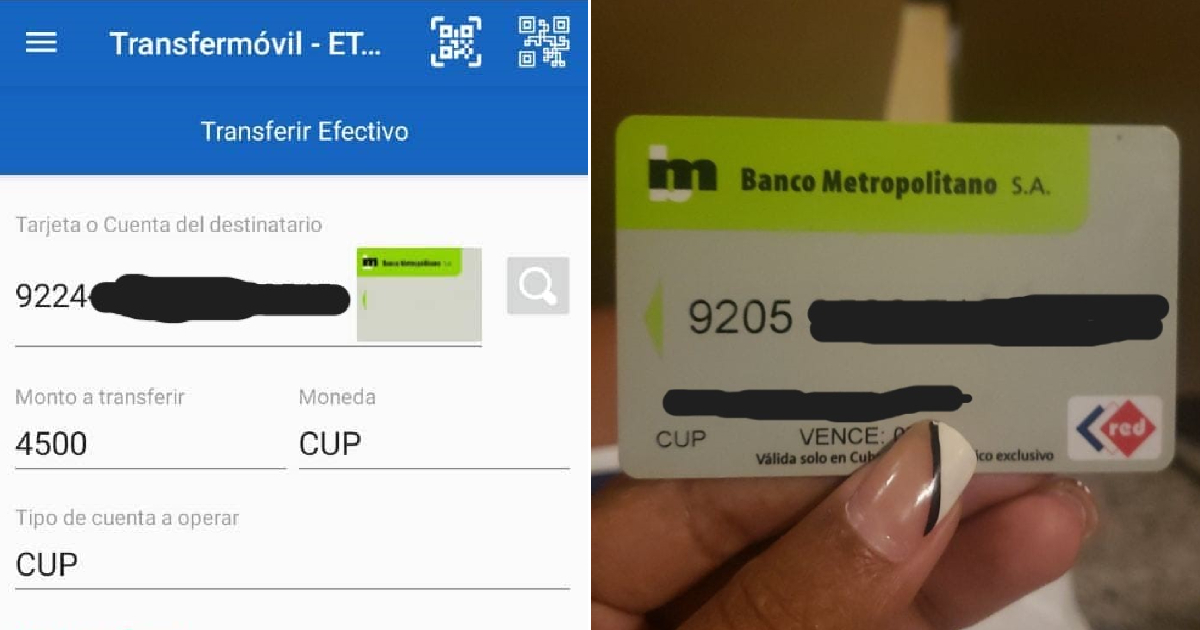
A Cuban woman denounced the scam attempt in which she was involved when she attempted to sell freely convertible currency (MLC) through an online transaction.
The user of Facebook identified as Bfm Simple revealed that a woman tried to scam her, telling her it was “to buy juices for her baby.”
“He makes me send him a photo of my license and my card (in national currency) and MLC to know which one to transfer to and from which one to transfer, it seemed strange to me, but since I never usually do that,” said the affected person.
He indicated that since it was something he did not normally do, he thought “it was common.”
He explained that the alleged scammer sent him a photo with her card and told him that she would pass the national currency first, asking the complainant for telebanking, which she told him she did not have.
When the alleged transaction was carried out, the confirmation number came from the scammer's number instead of through the Transfermóvil payment application.
“It immediately caught my attention and I checked the balance on my cards, the money was never transferred,” he said.
This person claims that she never transferred the MLCs either and publishes the complaint so that other people do not have the same scare as her.
At the beginning of this year, given the increase in scams when making bank transfers through the application of the Central Bank of Cuba, Transfermóvil, A Cuban made a video where he demonstrates how criminals carry out this type of robbery.
The user Carlos Ernesto Cordero Batista, accompanied the video on the social network Facebook with a description saying that it was a “scam attempt recorded in real time.”
The young man warned his followers to observe the modus operandi of those he called "lividores", and asked that they not be fooled, as well as that "the video be shared with everyone you know to unmask these thieves."
In addition, he promised that he would soon upload “other examples of scams that are being carried out,” and recalled that anyone can be a victim of these crimes.
Faced with these types of events, citizens are unprotected because the Cuban police are not responsible for their protection.
A Cuban, who was also scammed when making an online transaction to buy MLC, when she went to the police to present her case, The officers told her that she also committed a crime.
The citizen Maritza Rodriguez wrote to CyberCuba telling his experience. He pointed out that the complaints of fraud due to the online purchase and sale of MLC, before the Cuban police, are not valid and that they clean their hands by blaming the victims of the theft.
What do you think?
COMMENTFiled in: